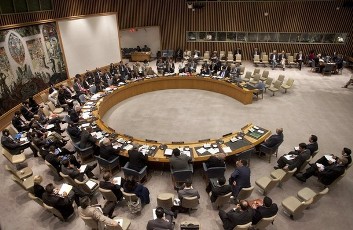Britain’s veto powers at UN Security Council queried: report
July 21, 2016 (JUBA) – United Nations officials have reportedly questioned if Britain’s veto-power on the 15-member Security Council still applied, after it withdrew police officers from a peacekeeping mission in South Sudan after the recent violent clashes.

Britain, France, United States, China and Russia holds veto powers on the Security Council. The five permanents members of the Security Council are charged with maintaining international peace and security and mandate peacekeeping missions.
According to an internal memo by the UN peacekeeping department, Germany and Sweden also withdrew their police without consultation and the world body has barred all three countries from replacing the officers should the situation in South Sudan improve.
“The departure of the police officers has affected the operational capability of the mission at headquarters level and has dealt a serious blow to the morale of its peacekeepers,” the memo, seen by Reuters, reportedly read.
The internal memo, which does not mention Britain and Sweden, said that for the states who are also on Security Council, their withdrawal of police from South Sudan “can be considered a lack of respect to their engagement on peace and security.”
British troops arrived in South Sudan last month to take part in the UN peacekeeping mission as it was earlier announced at a UN gathering held in September last year.
Britain, its Defense ministry said then, would send around 300 troops to South Sudan, where tens of thousands of people have died and millions displaced in a bloody civil which broke out in late 2013.
The British forces in the world’s youngest nation were earmarked to carry out engineering work to strengthen the country’s infrastructure.
The UK personnel would reportedly be split into two engineer squadrons to provide “vital engineering work to strengthen infrastructure as well as further advisory support” in the war-torn nation.
Britain remains a large financial contributor to UN peacekeeping missions.
More than 270 people were killed and over 40,000 displaced from their homes when heavy fighting broke out on 8 July between troops loyal to President Salva Kiir and those allied to the country’s First Vice President Riek Machar in the capital, Juba.
(ST)
